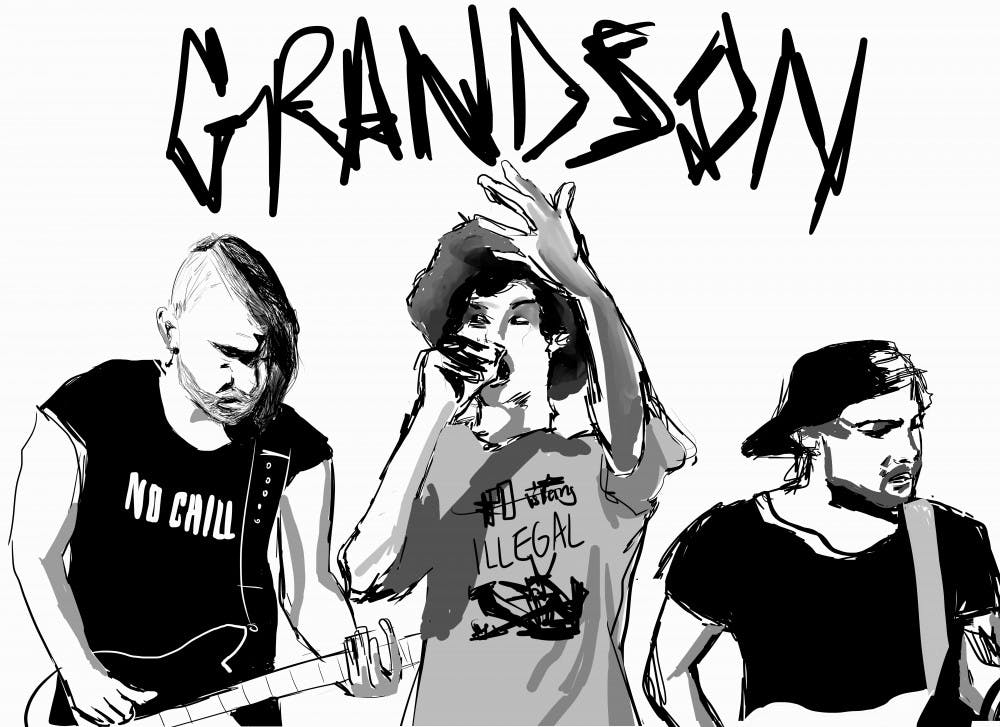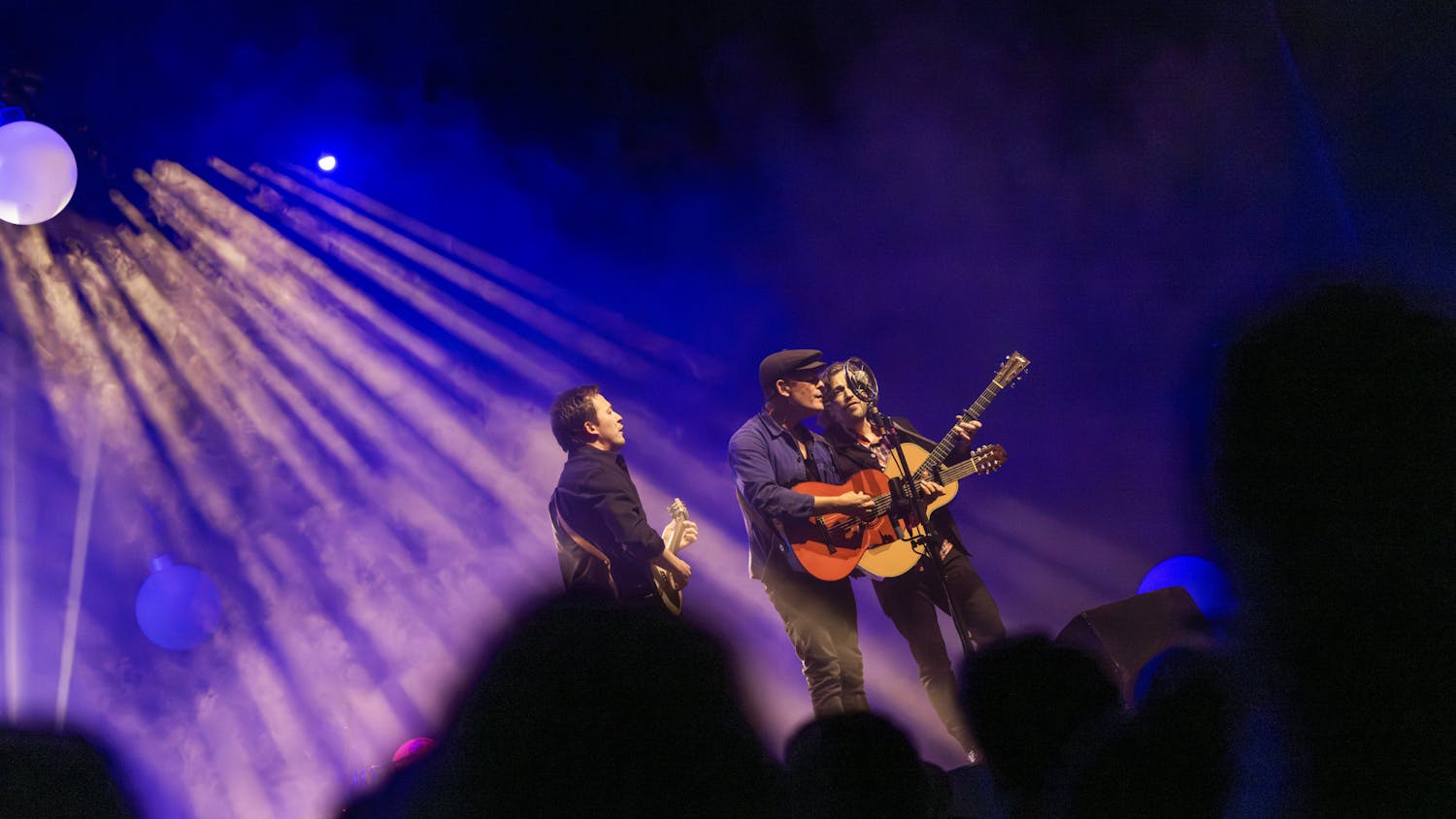Toronto artist Jordan Edward Benjamin, who goes by the name grandson, is difficult to characterize. He creates songs that combine intense lyrical hip–hop verses with solid riffs and punchy, garage rock instrumentals. The artist has also accrued a massive punk rock following thanks to songs about social justice, a DIY, “anyone can rise up” ethos, and a presence at shows and festivals like Chicago’s Riot Fest, which caters towards a more punk and hardcore crowd. Whatever musical background the fans at Union Transfer came from on Sunday, from rap to blues to punk, everyone came together in the spirit of a good time.
Zero 9:36 were a late addition to the bill, not even present on many printed tickets, and as such had an upward climb into the hearts of fans who were not expecting another act. By the end of their twenty–five minute set, they received a generally positive reaction, with a combination of rock and hip–hop sure to appeal to most grandson fans, even if there was no standout number.
nothing,nowhere., the stage name of Joe Edward Mulherin, brought a cult following of his own to his opening set, with his dedicated fanbase jumping and headbanging. One woman proclaimed, at least once per song, “I want to have his babies!” The emo–trap blend he presented felt less in line with hip–hop artists like grandson, and more with other emo acts he has supported, such as Real Friends and Tiny Moving Parts. Many of Mulherin’s fans left the venue before the headliners.
Those who were waiting for grandson, however, would not be disappointed when Benjamin and his backing band came on the stage. His seventy–five minute set was laden with calls to arms, denouncements of the powerful, and lamentations about falling into familiar self–destructive patterns when all seems hopeless. “My president’s a felon, and I can’t cope,” he shouts on “Oh No!!!” “Pretend everything is awesome / While the world burns outside,” he wails on “Is This What You Wanted?” Behind him, scenes of a broken world unfold, from statistics on heroin overdoses to images of protests.
In the midst of the anger grandson threw at the audience, one song stood out in particular: the ballad “Destroy Me,” featuring Benjamin performing solo on acoustic guitar as the newsreel images faded to candlelight. The actual lyrics show just as much pain as his normal verses–“I am a lit fuse, you are my kerosene”–but, stripped down and slower, this mutually destructive relationship sounded almost sweet. That “Destroy Me” led directly into “Despicable,” detailing the painful end of such a relationship, broke that sweetness as soon as it was created.
It can be difficult to muster enthusiasm on a Sunday night. Usually, the only crowds such shows draw are the true fans, who know every word to every song and can scream them at the top of their lungs. Even then, most of the crowd has school or work the next day, and doesn’t want to risk calling out due to a mosh pit injury or a raging hangover. grandson, however, never lost the crowd’s attention or interest, save for a few quick moments between songs for the audience to catch their breath and put their fist in the air in solidarity with the causes he spoke about, which ranged from journalistic integrity to preventing gun violence.
Not even the presence of a handful of crowdkillers could bring the mood of the evening down. It feels ironic that, at a show meant to give agency to women, people of color, and other marginalized groups, that it was a few large white men dominating the pit, often by knocking down women twice their size. grandson’s requests for respect did little to dissuade them, but a tepid fan reaction to their violent antics proved a more effective shame.
Like a growing number of artists, including punk and post–hardcore virtuosos PUP and La Dispute, grandson elected not to do an encore. Instead, after the conclusion of breakout single “blood // water,” the band launched into an abridged remix and Benjamin threw himself into the crowd. Although Benjamin told the audience multiple times that “blood // water” was grandson’s final song of the night, there was a haze over the audience as the lights came u—they were waiting for more.







